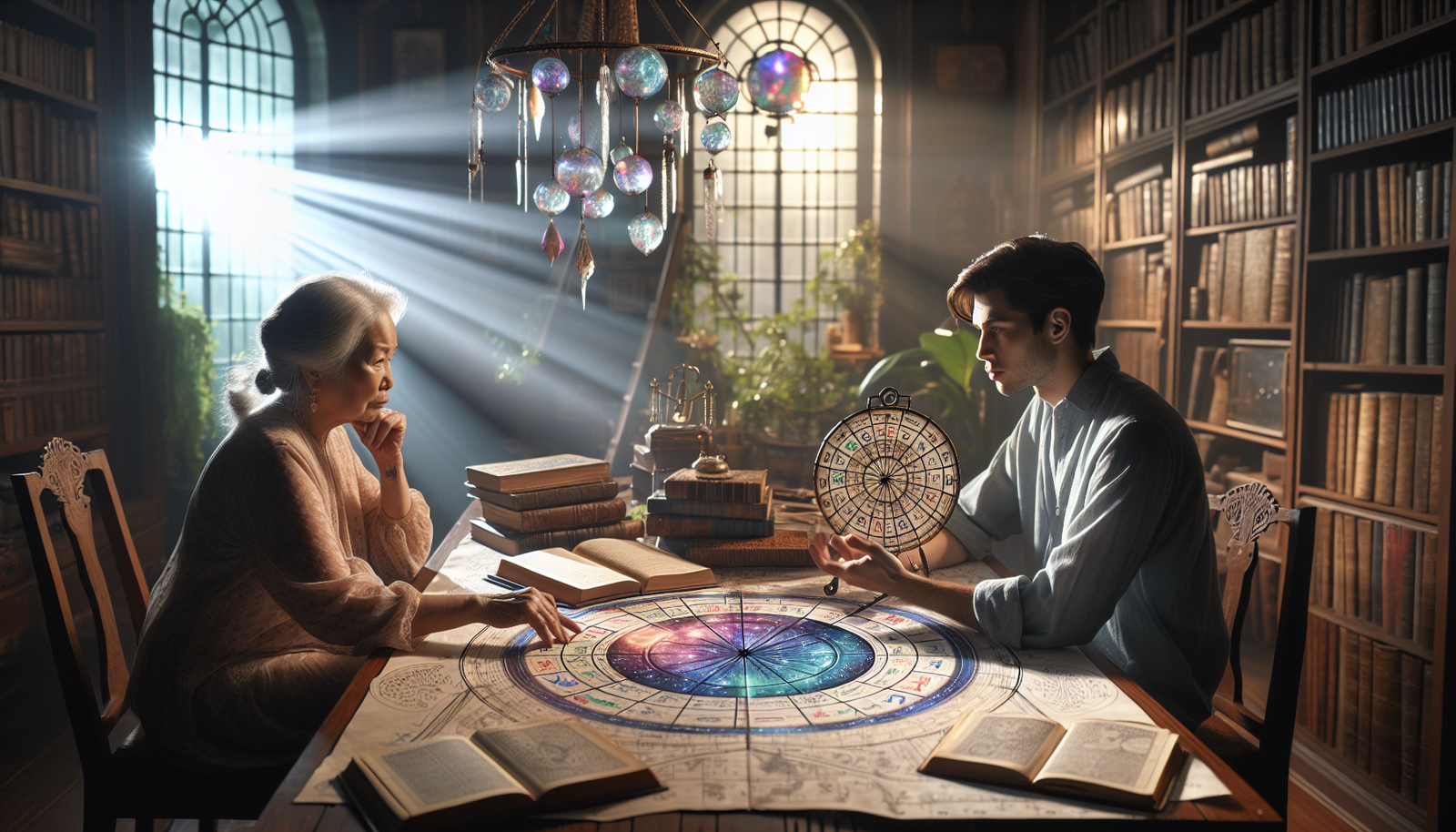When it comes to marriage, many cultures place great importance on compatibility. One popular method for assessing this compatibility is through horoscope or Kundali matching. This practice dates back centuries in Vedic astrology and serves as a tool for determining the best match for a successful and harmonious marriage. In this blog post, we’ll explore the fundamentals of marriage matchmaking using horoscopes, the process of Kundali matching, and its significance in ensuring a happy marital life.
What is Horoscope Matching?
Horoscope matching, also known as Kundali matching, is a traditional practice used primarily in Hindu marriages. It involves analyzing the birth charts (Kundalis) of both individuals to evaluate their compatibility. The main aim is to identify the strengths and weaknesses of their relationship based on astrological principles.
Each person has unique planetary positions in their horoscope, determined by the date, time, and place of their birth. These positions influence personality traits, preferences, and compatibility with others. In marriage matchmaking, astrologers focus on:
- Nakshatras (lunar constellations)
- Gunas (qualities or points)
- Doshas (flaws)
The Importance of Kundali Matching
Kundali matching holds significant importance in many cultures for various reasons:
- Compatibility Assessment: It provides insights into the couple’s compatibility on multiple levels, such as emotional, physical, and spiritual.
- Prosperity and Happiness: A successful match can lead to a harmonious marriage, filled with prosperity and joy.
- Addressing Potential Issues: Kundali matching helps identify potential challenges that may arise, allowing couples to address them proactively.
- Family Support: Families often look for favorable horoscopes to ensure acceptance and support for the union.
Key Components of Kundali Matching
Several crucial factors are examined during Kundali matching:
Nakshatras
Nakshatras play a vital role in determining the emotional and physical compatibility of a couple. Each Nakshatra has specific characteristics that indicate how the couple may interact in a marital relationship. For instance:
- Couples with complementary Nakshatras are believed to have stronger bonds.
- Conflicting Nakshatras may signal potential misunderstandings.
Gunas
The concept of Gunas involves eight different attributes that measure the compatibility score between two charts. Each match receives points based on these attributes:
- Varna: Social status compatibility.
- Dina: Health and happiness factors.
- Yoni: Sexual compatibility.
- Graha Maitri: Mutual understanding and adaptability.
- Gana: Temperament alignment.
- Bhakoot: Prosperity and emotional bonds.
- Nadi: Genetic compatibility and health concerns.
To have a strong match, at least 18 out of 36 points is a favorable score. A higher score reflects a higher likelihood of marital harmony.
Doshas
Several Doshas can be present in a Kundali, known to create obstacles in marriage. The most common include:
- Mangal Dosha: Caused by Mars’ position, it is believed to lead to challenges in the married life.
- Kaal Sarp Dosha: It indicates potential struggles or delays in marriage.
- Shani Dosha: It can lead to difficulties due to the position of Saturn.
When Doshas are present, astrologers might suggest remedies or precautions to mitigate the adverse effects.
How is Kundali Matching Done?
The process of Kundali matching is straightforward but requires accuracy. Here’s how it typically unfolds:
- The birth details (date, time, and place) of both individuals are collected.
- An expert astrologer casts the birth charts based on these details.
- The astrologer analyzes and compares the Kundalis, focusing on Nakshatras, Gunas, and Doshas.
- After careful assessment, a compatibility score is generated to indicate the strength of the match.
- Based on the analysis, recommendations or remedies may be provided to enhance compatibility.
Modern Perspectives on Kundali Matching
While many people still adhere to traditional matchmaking practices, modern perspectives are evolving. Here are some of the changes observed in recent times:
- Inclusivity: Individuals now consider personal preferences, education, and mutual understanding alongside astrological compatibility.
- Blending Traditions: Many couples integrate Western astrology with Vedic astrology for a more comprehensive analysis.
- Emotional Intelligence: Couples are focusing more on emotional compatibility and less on strictly astrological factors.
Benefits and Drawbacks of Kundali Matching
Like any practice, Kundali matching has its pros and cons:
Benefits
- It can help in making informed decisions about marriage.
- It promotes family harmony and acceptance.
- Kundali matching offers insights that prepare couples for potential challenges.
Drawbacks
- Overemphasis on astrology may disregard personal compatibility.
- Sometimes, it can discourage relationships that may have flourished without astrological objections.
Conclusion
Kundali matching remains an integral part of many cultures’ marriage customs. While it serves as a valuable tool for assessing compatibility, it is essential to remember that astrology is just one of the many factors influencing a successful marriage. Love, understanding, and communication are crucial in creating a lasting bond. Emphasizing emotional connection alongside astrological insights can lead to happier and more harmonious marriages. Whether you choose to rely on traditional methods or blend them with modern values, the key is to approach the journey of partnership with openness and mutual respect.
In the end, while Kundali matching offers guidance, the heart’s choice plays the most significant role in enduring love.

